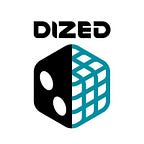For a while, Games have been the most profitable category on Kickstarter, with only two close competitors, Design and Technology. The term “Games,” however, includes different types of products — the two most prominent being board games and video games.
Although the amount of Kickstarted game projects has grown by 228% from 2012 to 2017, the amount of money earned has only increased by 120%. The reason is simple: there are less successful video game campaigns than there used to be.
The issue with video games
How did the relationship between video games and crowdfunding get so tricky? Board games, despite their apparent complexities, are products that can be handled by a relatively small team, have predictable fixed costs, and, overall, are less likely to require millions of copies sold to make a profit.
Video games, especially those with a broader scope, cannot be made by a tiny team, and cannot be made as fast as people wish. An average video game project goes through several stages (prototype, pre-production, production, post-release support), is in development for at least 24 months — sometimes even 4 or 5 years — and a decent-sized team can be anywhere from 15 to hundreds of individuals, depending on the game. The professional figures involved — coders, server programmers, artists, animators, game designers, level designers, writers, QA, marketing people… — are often in high demand, or in other words, expensive and scarce. Profits can depend on the deal with the publisher, the distribution plan, and sometimes even the success of the hosting platform, which is often uncertain at the time many contracts are signed. In short: it’s a complicated business and a risky one at that.
Some of the projects that used crowdfunding, including Broken Age, the pioneer, ended up encountering issues and delays along the way. When it’s all said and done, even when your game raises three million (an astronomical amount in the mind of many backers) it probably needs double that budget to reach the final customer.
Figuring out all the pitfalls took some time for both backers and studios: what looked like a solution to all funding problems, started to deliver its own set of challenges. Logistic of rewards, keeping a vast community happy, the constant need to show progress, the PR nightmare of postponing deadlines… you get the picture. Studios just wanted to focus on developing a game. Many went back to traditional fundings, and backers decided that except for super-loved IP comebacks, they could wait for games to come out before deciding on the purchase.
Analog is rocking the show
Board games, on the other hand, found their raison d’être on Kickstarter. With a total of nearly 700 million USD, board games have been growing by 20% in 2016, and 36% in 2017 (from 101,2 million USD to 137,8 million USD). By comparison, video games are stuck at 17 million USD. Good news for Dized: if the industry is growing it also means more players are sitting around tables, and all of them need to learn games.
Dized and crowdfunding
We follow the crowdfunding industry very closely. As Tony Gullotti says in this article
“From the creative side, Kickstarter allowed people to gain funding up-front in an industry with a lot of creativity where the games may not otherwise have been created. It’s (also) becoming much more a sales channel for people to pre-order games that will be out the following year for small/mid-sized companies, or a testing ground for ideas that would otherwise be too risky, excluding companies that have built it into their business model from the start.”
With similar reasoning, crowdfunding on Indiegogo was our way to validate the idea, investigate interest from the audience and promote Dized. The whole initiative has been massively helpful because we can now show to hesitant publisher and designers that 1) reading rules is an obstacle to trying and purchasing new games and 2) people are quite ready for learning rules in a different way.
Over the past few months, we have been requested to move Dized to the InDemand section of Indiegogo, which means let people pay for Early Access. There is a good reason why we haven’t done so just yet, and you’ll find out more in the near-future. Exciting times are coming.
— -
Want to learn more about Dized? Sign up on this page and make sure you’re the first to discover what’s new — we’re working on a few exciting things! No spam, only good stuff. You can also follow us on Facebook, Twitter and Instagram.
